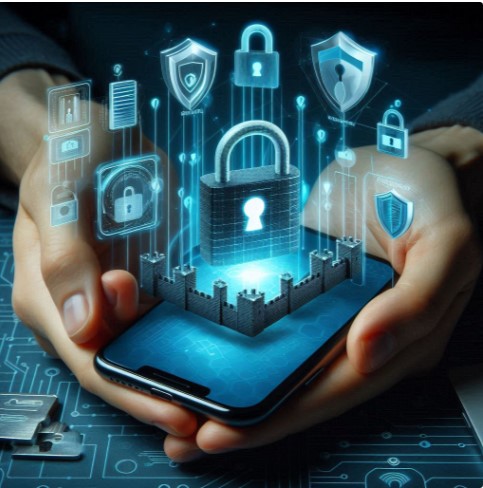Is the iPhone Secure from Hackers?
Introduction
In an age where digital security is paramount, the question of whether the iPhone is secure from hackers is a significant concern for users and tech enthusiasts alike. Apple has long marketed its devices, particularly the iPhone, as highly secure, emphasizing its robust encryption, privacy features, and the overall integrity of its iOS operating system. However, no system is entirely impervious to breaches. This article delves into the security features of the iPhone, common hacking methods, notable vulnerabilities, and best practices for maintaining iPhone security. Is the iPhone Secure from Hackers?

Apple’s Security Features
Apple’s commitment to security is evident in the multiple layers of protection it integrates into its devices and software. Key security features include:
- Hardware-Based Security:
- Secure Enclave: This coprocessor provides an additional layer of security for sensitive data. It is used for Touch ID, Face ID, and secure transactions.
- Biometric Authentication: Touch ID and Face ID offer secure, convenient authentication methods that are difficult to spoof.
- Software Security:
- iOS Updates: Regular software updates ensure that vulnerabilities are patched promptly, providing the latest security enhancements.
- App Store Review: Every app submitted to the App Store undergoes a rigorous review process to minimize the risk of malicious software.
- Data Protection:
- End-to-End Encryption: iMessages and FaceTime calls are end-to-end encrypted, meaning only the communicating users can access the data.
- Secure Data Storage: Data stored on the iPhone is encrypted, rendering it unreadable without the device passcode.
- Privacy Features:
- Permission Controls: Users have granular control over app permissions, such as location, camera, and microphone access.
- Privacy Labels: Apps in the App Store display privacy labels indicating how user data is collected and used.
Common Hacking Methods
Despite these robust security measures, hackers continually devise new methods to exploit vulnerabilities. Some common hacking techniques include:
- Phishing:
- Hackers use deceptive emails, messages, or websites to trick users into providing personal information, such as Apple ID credentials. Once obtained, hackers can access iCloud accounts and other services.
- Malicious Apps:
- Although rare due to Apple’s strict App Store policies, malicious apps can occasionally bypass reviews. These apps may steal data or provide unauthorized access to the device.
- Zero-Day Exploits:
- These are vulnerabilities that are unknown to the device manufacturer. Hackers exploit these flaws before they can be patched, potentially gaining access to the system or data.
- Man-in-the-Middle Attacks:
- Hackers intercept data transmitted over insecure networks. While iPhone encryption helps mitigate this risk, users on unsecured Wi-Fi networks are still vulnerable.
- Social Engineering:
- Hackers manipulate individuals into divulging confidential information. This can include pretending to be Apple support to extract personal information from users.
Notable Vulnerabilities and Breaches
Over the years, there have been several notable instances where iPhone security has been compromised:
- Pegasus Spyware:
- This sophisticated spyware, developed by NSO Group, exploits vulnerabilities in iOS to conduct surveillance on targeted individuals. Pegasus can extract messages, photos, and even activate the camera and microphone.
- iCloud Hacks:
- High-profile incidents, such as the 2014 iCloud breach, where celebrities’ private photos were leaked, highlight the importance of securing cloud accounts with strong, unique passwords and two-factor authentication.
- Jailbreaking:
- Jailbreaking is the process of removing software restrictions imposed by iOS. While it allows users to install unauthorized apps and tweaks, it also exposes the device to security risks as it bypasses many of Apple’s built-in protections.
Best Practices for iPhone Security
To enhance the security of your iPhone and protect it from potential hacks, consider the following best practices:
- Regular Updates:
- Always update to the latest version of iOS to ensure you have the most recent security patches and improvements.
- Strong Passwords:
- Use complex, unique passwords for your Apple ID and other accounts. Avoid using the same password across multiple services.
- Two-Factor Authentication:
- Enable two-factor authentication (2FA) for your Apple ID and other important accounts to add an extra layer of security.
- App Permissions:
- Regularly review app permissions and disable access for apps that don’t need it. Be cautious about granting permissions to new apps.
- Avoid Jailbreaking:
- Do not jailbreak your iPhone, as it removes critical security protections and increases vulnerability to malware and other attacks.
- Secure Your Network:
- Use secure Wi-Fi networks and avoid connecting to unsecured public Wi-Fi. Consider using a Virtual Private Network (VPN) for added security.
- Phishing Awareness:
- Be cautious of unsolicited emails, messages, or calls asking for personal information. Verify the source before providing any details.
- Find My iPhone:
- Enable Find My iPhone to locate your device if it’s lost or stolen. You can also remotely erase the device to protect your data.
- Regular Backups:
- Regularly back up your iPhone using iCloud or iTunes. This ensures that you can restore your data in case of a security breach or device loss.
- Security Apps:
- Consider using reputable security apps that offer additional protection features, such as malware scanning and secure browsing.
Conclusion
While the iPhone is widely regarded as one of the most secure smartphones available, it is not completely immune to hacking. Apple’s robust security measures, including hardware-based security, regular software updates, and stringent App Store reviews, provide strong protection against many threats. However, users must also take proactive steps to safeguard their devices. By following best practices such as keeping software up to date, using strong passwords, enabling two-factor authentication, and being aware of common hacking methods, users can significantly enhance their iPhone’s security and reduce the risk of being hacked.

Comments are closed